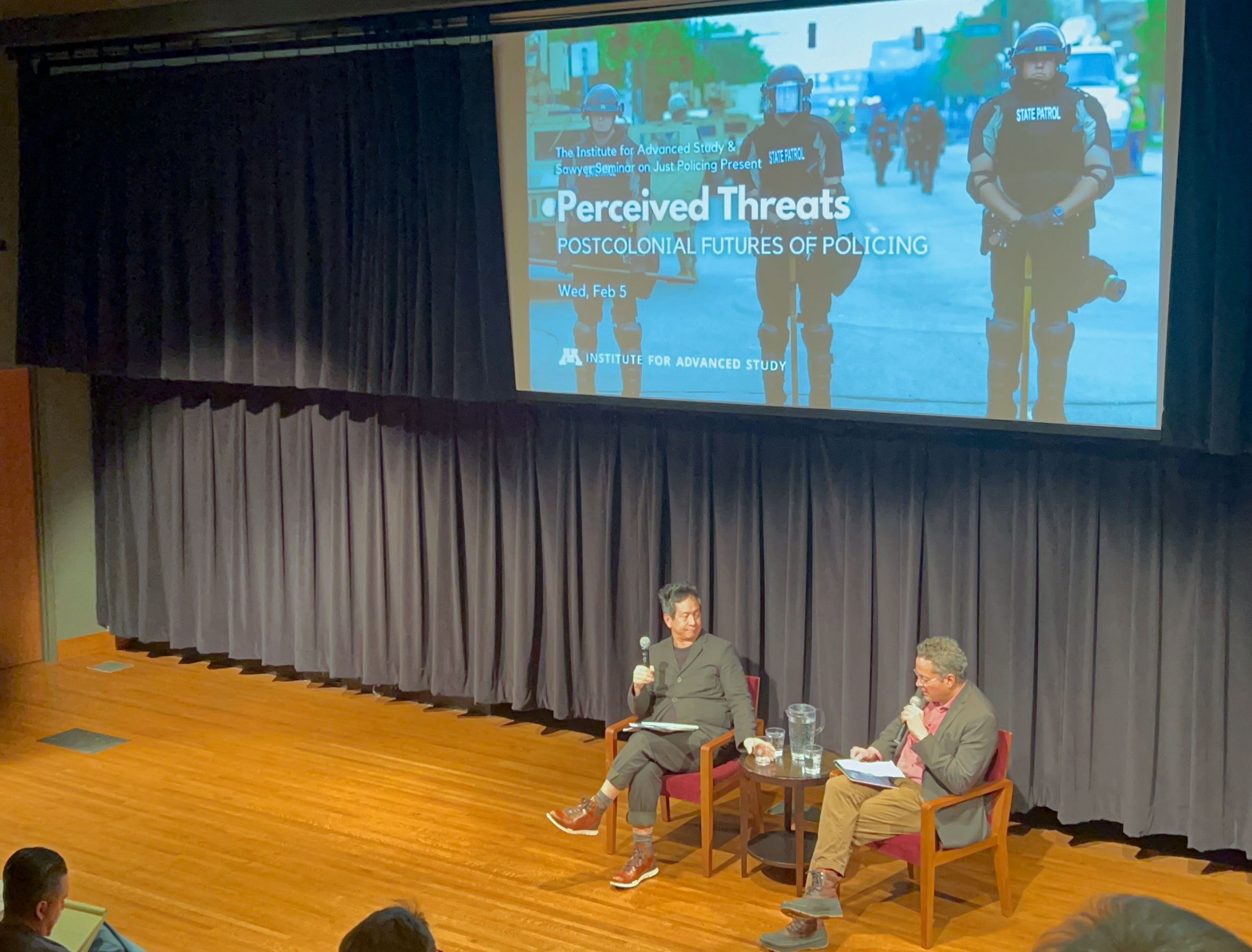Second-generation immigrant students say they have trusted the police but understand wariness in the history of their military background.
Byline: By Kinsey Gade
Mary Yang is a first-year student at the University of Minnesota. Her parents, who came to the United States as Hmong refugees from Thailand in 2002, have always viewed the police as a helpful resource, but Yang said she knows there’s more to the story.
“Police brutality and violence are breaking our community apart,” Yang said. “At the same time, we do need the police.”
Exploring that tension is part of what drew Yang to the Feb. 5 (In)Justice Series and UMN Conversations event at Northrop Auditorium, “Perceived Threats: Postcolonial Futures of Policing,” which featured the work of University of Chicago sociology Professor Julian Go.
At the event, Go discussed the history of the civil police absorbing military methods based on his research and book Policing Empires: Examining the Militarization of the Civil Police.
Go said civil police were initially meant as an alternative to military force in U.S. cities, but gradually police methods became more militarized as practices evolved. Former military figures like August Vollmer, who served in the Spanish-American War before entering the police force, brought an Army mindset to policing, creating what Go coined a boomerang effect.
“Tools and tactics of warfare were brought home for domestic use,” Go said. “To deal with the so-called barbarians at home, you use methods that you used on barbarians abroad.”
Vollmer introduced tactics such as “pin-mapping” to the Police Department in Berkeley, California, which gradually spread across the U.S. This tactic identified prevalent crime areas, which Go referred to as the “art of making war on the map.”
Go said these areas primarily targeted low-income, minority and immigrant neighborhoods, which Vollmer believed needed increased policing.
“There is a difference between the kinds of immigrants we’re talking about,” Go said. “We have to recognize that there are different experiences and perceptions of the police based largely on social class.”
Go’s parents came to the U.S. from the Philippines during the “brain drain” to fill the gap in medical expertise. Their profession and social class created a positive and conservative outlook regarding local police and government.
Growing up in a small Michigan town, Go said he experienced immigrant exclusion in school and saw college as a cultural haven. Go was drawn to the academia and history of policing after several events of police brutality, including the murders of Eric Garner and George Floyd.
Yang said she went to Go’s discussion to learn about the root causes of police violence and U.S. Immigration and Customs Enforcement procedures.
Yang said the increased militarization of police and increased use of force have caused her to feel differently about police compared to her parents.
“I thought that the police were there to protect us, but after George Floyd and the following protests, I felt indifferent,” Yang said. “I just don’t want them destroying our community.”

